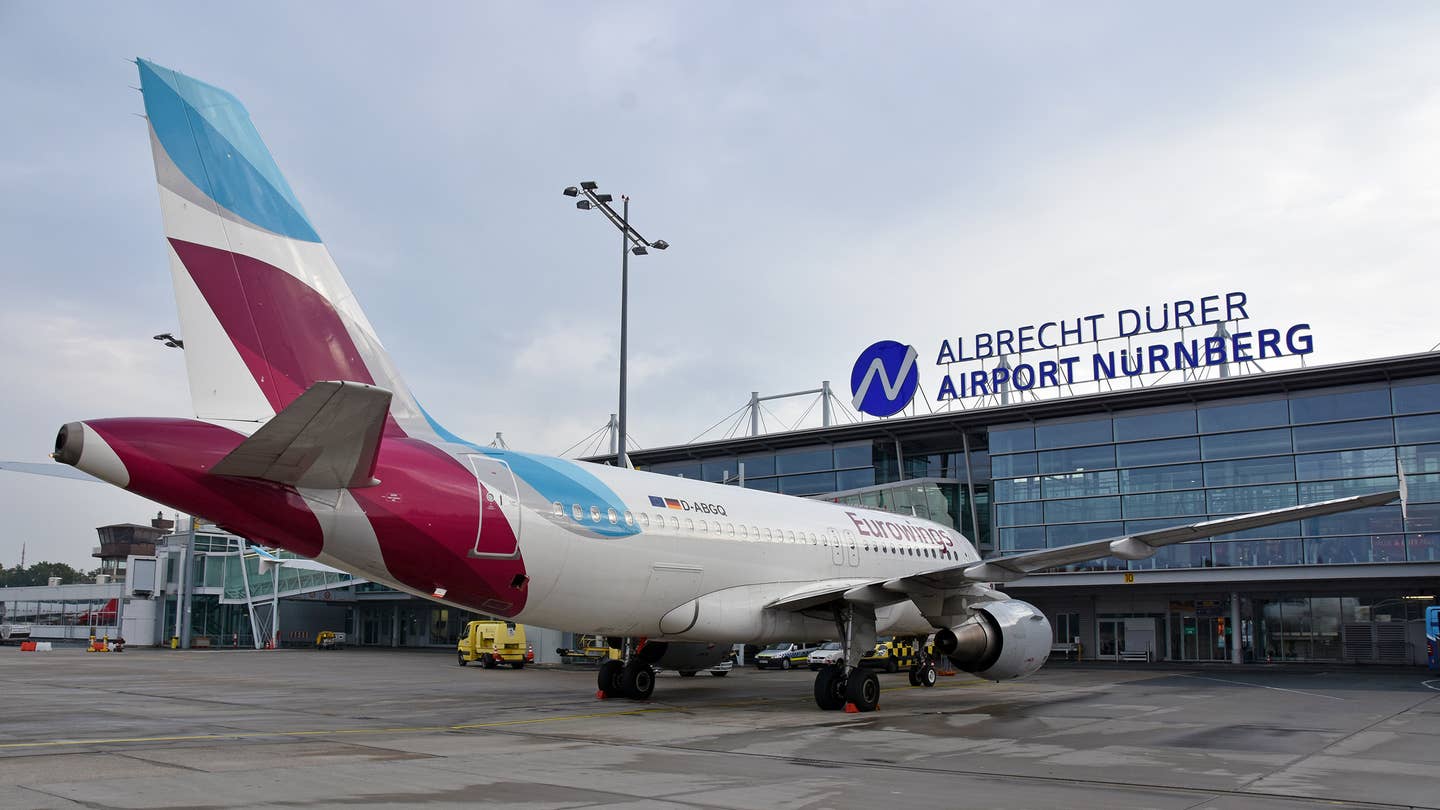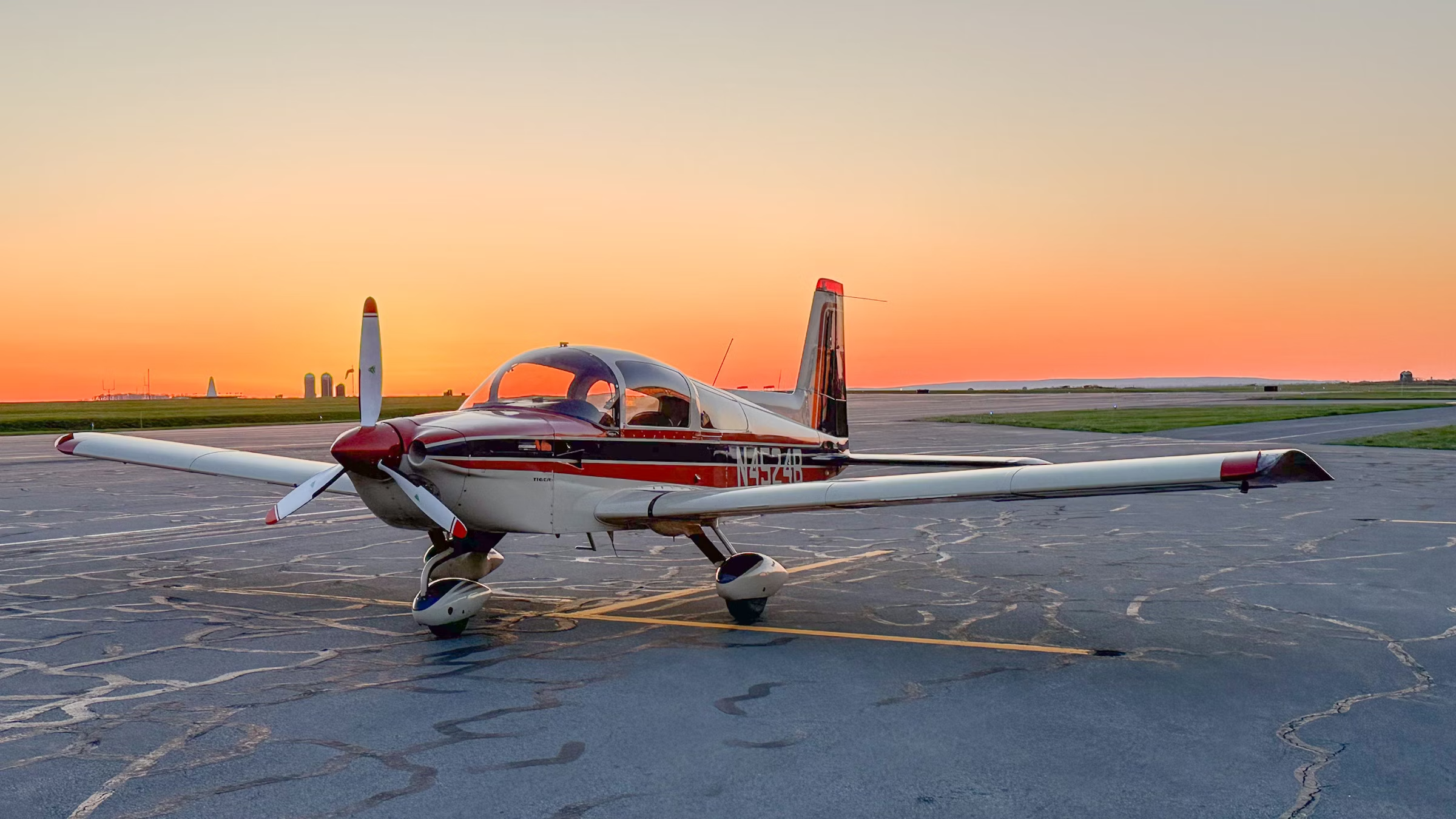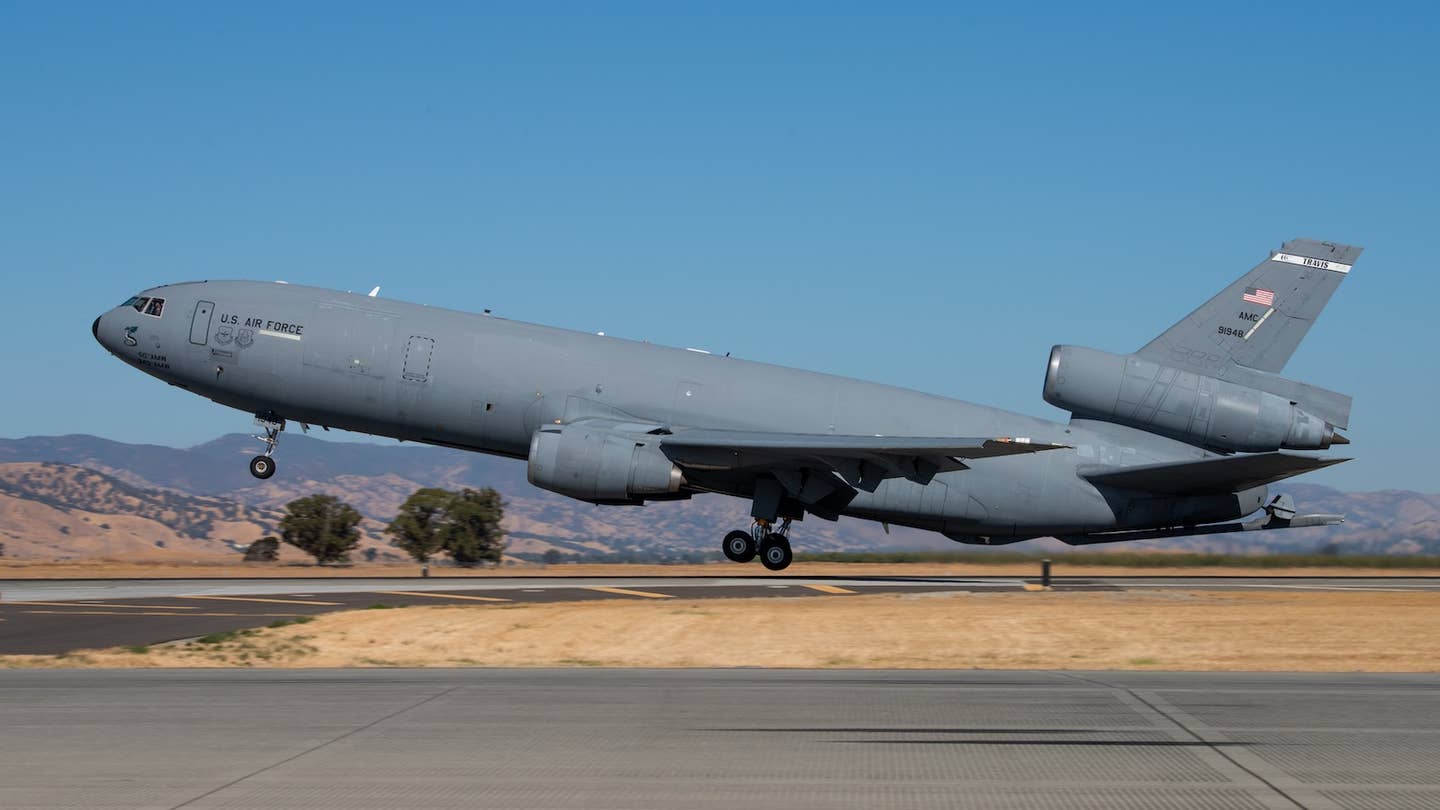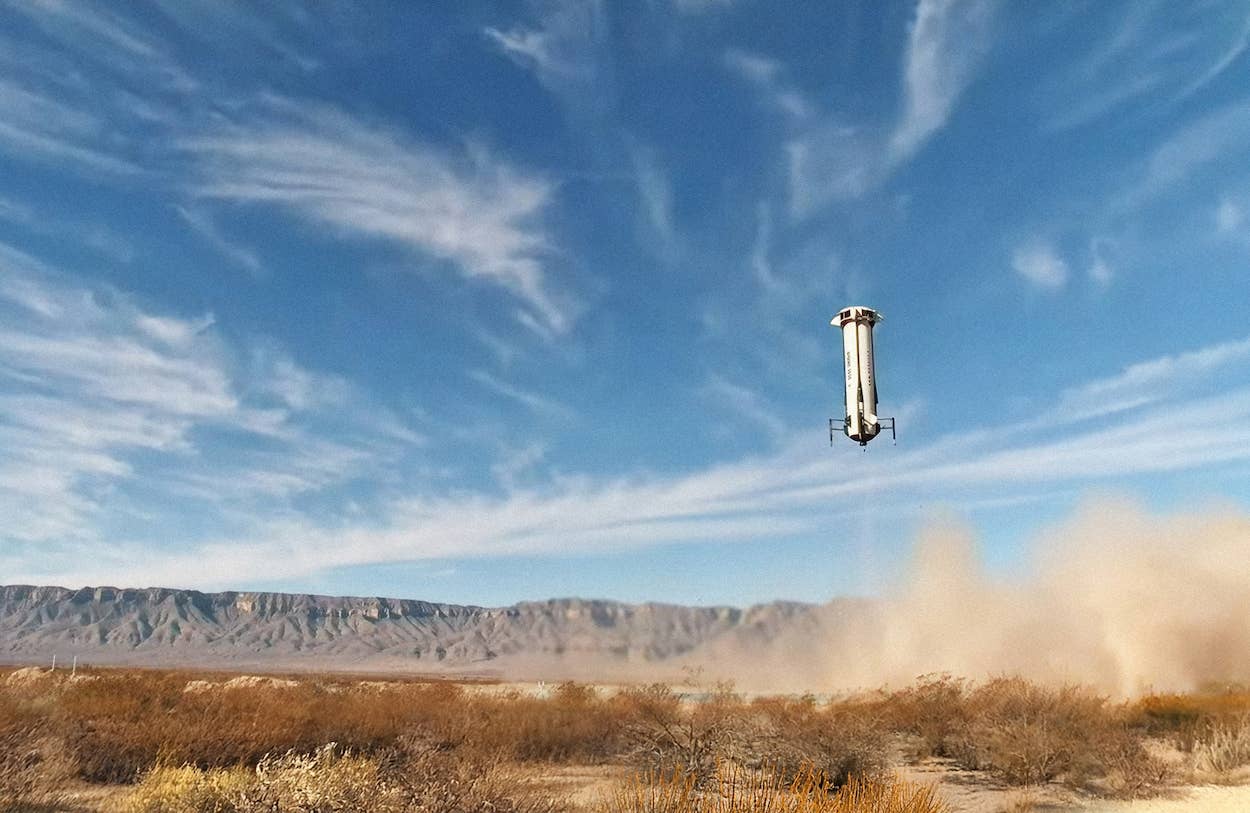German Climate Activists Glue Themselves to Tarmac, Halting Flights
Protestors manage to temporarily suspend flights at Cologne Bonn Airport and Nuremberg Airport before police intervene.

Activists temporarily suspended flights at Nuremberg Airport and Cologne Bonn Airport in Germany. [Courtesy: Nuremberg Airport]
A group of climate activists temporarily halted flights at two German airports on Thursday by gluing themselves to the asphalt.
Eight members of the Last Generation—an organization aiming to persuade the German government to sign on to an international ban on the use of oil, gas, and coal by 2030—used bolt cutters to breach fences at Berlin Brandenburg Airport (EDDB), Cologne Bonn Airport (EDDK), Nuremberg Airport (EDDN), and Stuttgart Airport (EDDS).
Once they reached the tarmac at about 5 a.m. local time, protestors stuck themselves to the ground, raising signs that read “Oil Kills” and “Sign the Treaty.” Flights at Cologne Bonn and Nuremberg were briefly suspended due to police efforts to remove the protestors. The activists did not reach the airports’ main runways.
All eight protestors were detained by police but later released, Last Generation said in a post on X.
“Friends, if you are worried about your flights: We are not the ones who will prevent most of them,” the group added.
Last Generation, which has a presence in several countries, is known for its disruptive, headline-grabbing protests, such as throwing mashed potatoes and pea soup at famous paintings in museums.
In recent months, though, the group has turned its attention to airports.
According to the United Nations, the transport sector is responsible for about a quarter of the world’s greenhouse gas emissions, with aviation accounting for roughly 12 percent of those emissions. Various sources place aviation’s share of global carbon dioxide emissions between 2 and 4 percent.
In July, Last Generation shut down hundreds of flights at Frankfurt Airport (EDDF), the country’s busiest airfield, and Cologne Bonn using similar tactics. In May, activists targeted Munich Airport (EDDM), canceling 60 flights. The group has also spray painted private jets, sometimes causing tens of thousands of dollars worth of damage.
German airport association ADV on Thursday condemned the recent demonstrations, calling on the German government to implement stricter penalties for the protestors.
“[Thursday's] disruptive actions at several airports are a concerted act of criminal blackmail,” the association said. “This is not a peaceful protest and there are no supposedly higher goals at stake. These are malicious intrusions into air traffic and into the personal rights of every traveler who cannot take their flight as scheduled.”
Nancy Faeser, Germany’s federal minister of the interior and home affairs, similarly criticized the activists, calling their actions “dangerous and stupid.”
“We have proposed severe prison sentences,” Faeser said in a post on X. “And we are requiring airports to make their facilities much more secure.”
The proposal Faeser refers to is a bill that was passed by the country's cabinet last month but requires further approval to take effect. The measure would implement prison sentences of two to five years for people who break through airport perimeters, a violation that currently carries only a fine.
“They repeat themselves, so again: Their political failure is dangerous and is driving us ever deeper into catastrophe!” Last Generation responded to Faeser.
In another post, it said: “Things cannot go on like this. While storms and disasters are increasing worldwide and the climate catastrophe is also clearly noticeable here in Germany, it is unacceptable that our government continues to invest in fossil industries and energies.”
The aviation industry writ large has committed to reach net-zero emissions by 2050, with regulators and private companies backing plans put forth by organizations such as the International Air Transport Association (IATA) and International Civil Aviation Organization (ICAO).
However, not all stakeholders agree on how to get there, and some experts believe the industry is running out of time to change its trajectory. Sustainable aviation fuels (SAF), which are being developed by several companies, are expected to play a large role in the push for decarbonization, but airlines have concerns around its costs and production. Alternative fuels such as hydrogen face similar barriers to scale.
Like this story? We think you'll also like the Future of FLYING newsletter sent every Thursday afternoon. Sign up now.

Sign-up for newsletters & special offers!
Get the latest FLYING stories & special offers delivered directly to your inbox






